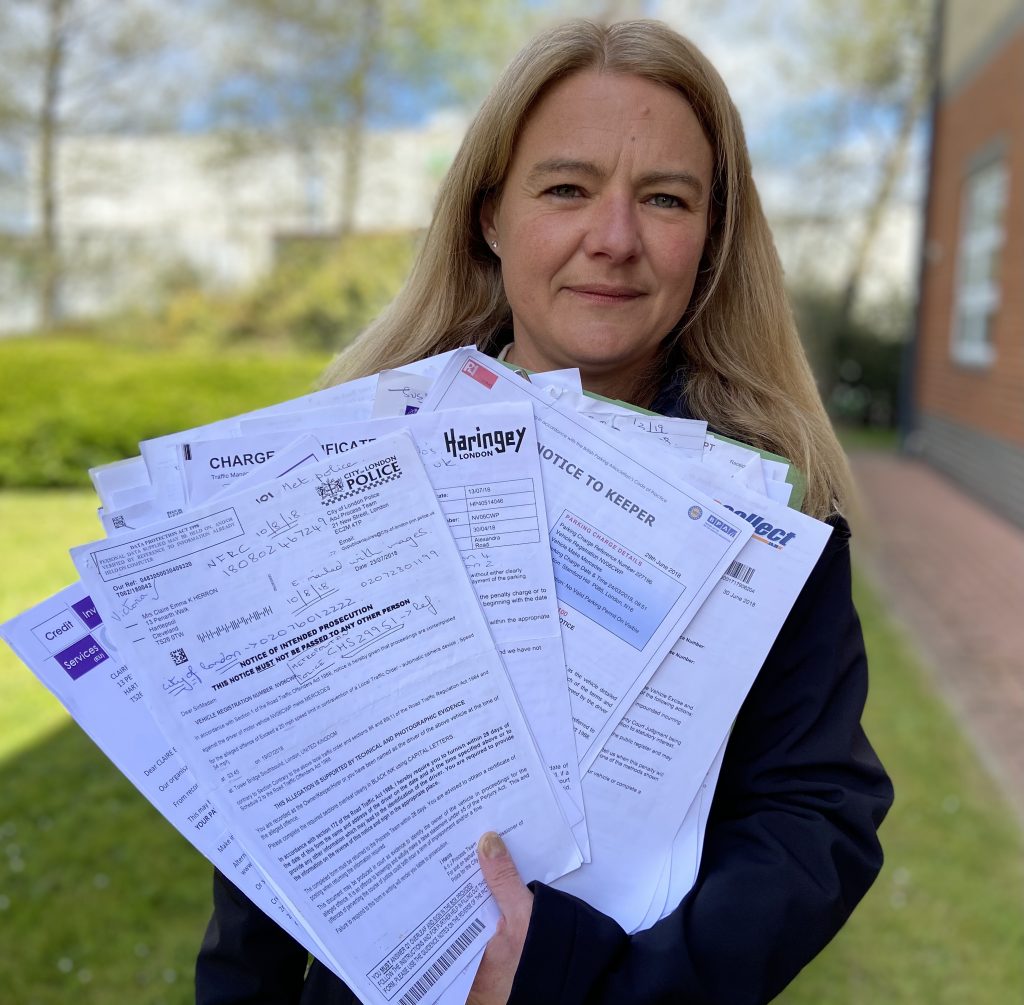PCC-funded Victim Care and Advice Service (VCAS) is calling for a review of the law around identity theft.
Calls come after a Hartlepool woman received almost £20,000 in fines when her car number plate was cloned from an advertisement she’d placed online.
Claire Herron contacted VCAS, who support victims of crime across Cleveland, Co Durham and Darlington, when she was on the verge of a nervous breakdown.
She had advertised her Mercedes for sale on Gumtree and was totally unaware the plates had been cloned until speeding fines, congestions charges and threats of arrest warrants began pouring through the letterbox.
Incredibly, because she’d not had any money or physical property stolen, and the person who cloned the plates hadn’t obtained money using her identity, in the eyes of the law no crime had been committed.
As a result, she was never considered a victim and was considered liable for the fines until she could prove otherwise.
Claire said: “It was Easter Bank Holiday in 2018, I was just opening my post and there was a fine for me supposedly going through a tunnel somewhere just outside London.
“There was a photograph of a car that looked like mine with my plate on, except it wasn’t my car and I hadn’t been in London.

Start of a long nightmare
“I contacted Transport for London straight away and was told it would get sorted out after the Bank Holiday, but it didn’t and that was just the start of a very long nightmare.
“The fines just kept coming and coming – parking charges, speeding notices and demands from nearly every borough council in London.
“One was from the City of London Police for driving over London Bridge at 3am, when I was at home in bed in Hartlepool with my car parked outside my house. The car was triggering cameras all over and I couldn’t’ stop it.”
Not a crime
Identity fraud is not currently considered a crime – using a stolen identity in criminal activity such as obtaining goods or money by deception is.
As Claire had suffered no personal financial loss, she wasn’t considered to be a victim and technically, no crime had been committed.
In fact, the councils and companies issuing the unpaid fines and charges were considered to be the victims.
Claire was passed back and forth from Cleveland Police to the Metropolitan Police to no avail – she says no solicitors would help as she hadn’t been accused or found guilty of anything.
It was only through charity – Victim Care and Advice Service that she managed to resolve the nightmare after almost a year.
Shocking and stressful
Claire said: “I wasn’t considered a criminal or a victim and this didn’t come under the usual identity theft rules – I was just innocently stuck in this automated system that keeps going and there was nothing I could do to stop it – it was incredibly stressful and shocking.
“I was on the edge of a nervous breakdown and I started to panic; this was potentially quite sinister and what if, whoever had cloned my plates, did something really serious like killed someone in a hit and run or something?
“It really started to impact my mental health badly; I reached a point where I physically couldn’t open my post anymore.”
Baliffs at the door
One morning, Claire received a call from her 80-year-old mother who runs a shop in their local town
Claire said: “She said there were bailiffs at the shop and they wanted £1200 from me. I told her it was all a mistake and to do nothing, that I was on my way.
“When I got to the shop these big, strapping bailiffs were there, demanding money. They said they’d been round to my house, gone into the back garden and into my kitchen so they could tell me what type of dog I had and what I’d last had to eat. It was so intimidating and very scary.
“I hadn’t told my mother about it all as I knew it would cause her stress. I tried to explain and went to get all the evidence, but by the time I got back my mother had caved into the pressure and given them £1200. She just couldn’t bear it and wanted them to go away.
“We need a review of the law around ID theft so people like me can be heard and recognised as victims.”
Dave Mead, of VCAS, said: “Claire was caught in this automated system and not being viewed as a victim meant she couldn’t be heard at all.
Law not kept pace
“Sadly, we’ve seen this happen to others and the level of injustice is appalling; that decent people living normal lives can suddenly find bailiffs on the doorstep pressuring thousands our pounds out of vulnerable relatives – not to mention the daily and lasting emotional stress this campaign of pressure causes.
“Legislation hasn’t kept pace with identity theft, fraud and cyber-crime and we’d like to see a root and branch review of how this works. 1000s of people are really suffering financially and emotionally.”
Eventually, through help and support from VCAS, who enlisted the help of her local MP at the time and the ANPR team, the number plate was entered into the system and the stolen car was picked up soon after. Claire was refunded the money taken by the bailiffs.
Steve Turner, Police Crime and Commissioner for Cleveland, said:” Claire was caught in a nightmare situation, which she didn’t cause and from which she struggled to release herself.
“The fact that cloning her car’s number plate was not considered an offence and, therefore, Claire was not considered a victim, made no difference to the amount of suffering, which she and her family endured over several months.
“It was only thanks to the patient and dedicated work of the team at VCAS that Claire managed to resolve the situation. “We really need to start to consider identity fraud as a crime and look seriously at how we can prevent innocent people, like Claire and her mum, becoming victims of it.”
